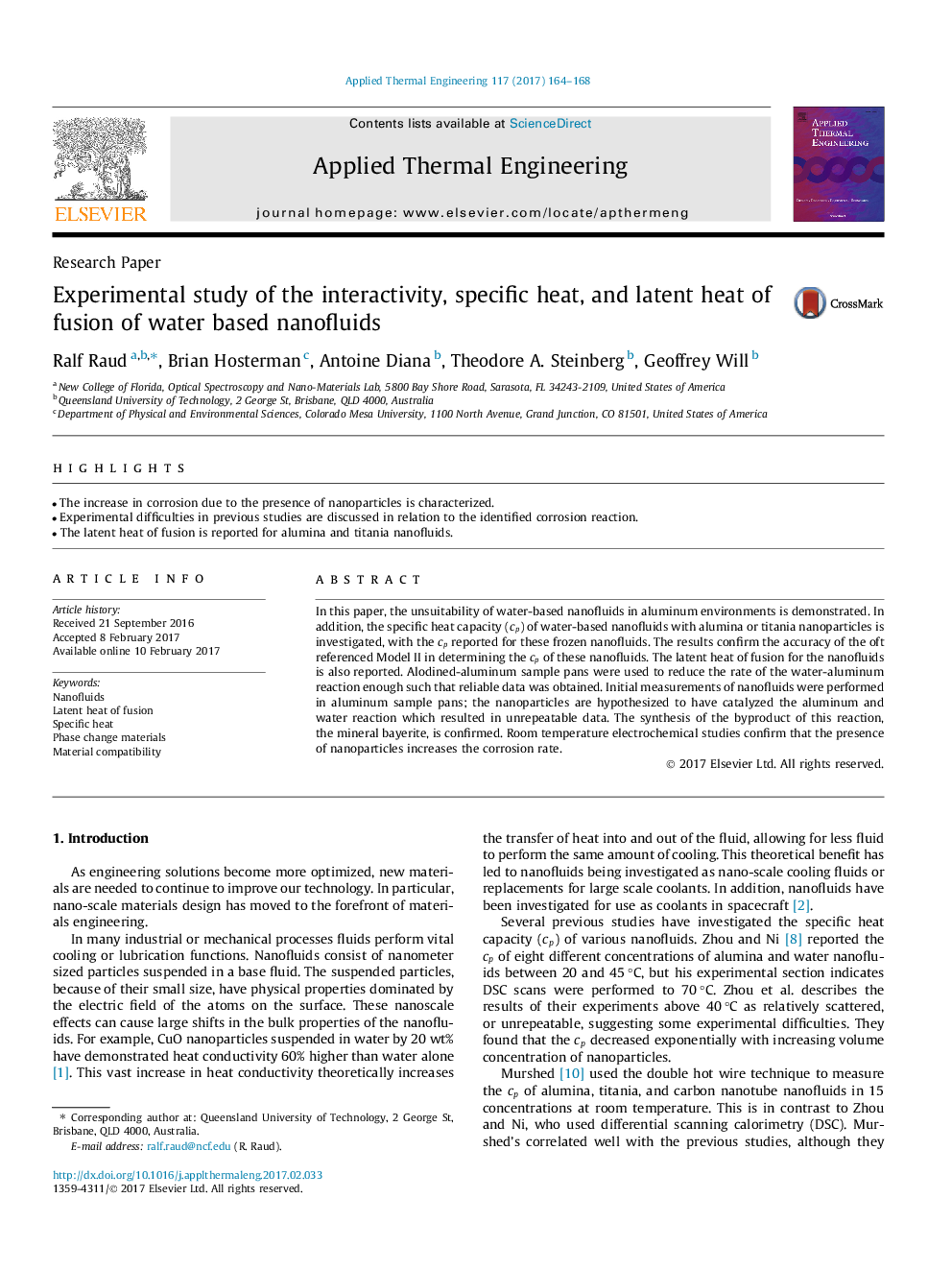| Article ID | Journal | Published Year | Pages | File Type |
|---|---|---|---|---|
| 4991507 | Applied Thermal Engineering | 2017 | 5 Pages |
Abstract
In this paper, the unsuitability of water-based nanofluids in aluminum environments is demonstrated. In addition, the specific heat capacity (cp) of water-based nanofluids with alumina or titania nanoparticles is investigated, with the cp reported for these frozen nanofluids. The results confirm the accuracy of the oft referenced Model II in determining the cp of these nanofluids. The latent heat of fusion for the nanofluids is also reported. Alodined-aluminum sample pans were used to reduce the rate of the water-aluminum reaction enough such that reliable data was obtained. Initial measurements of nanofluids were performed in aluminum sample pans; the nanoparticles are hypothesized to have catalyzed the aluminum and water reaction which resulted in unrepeatable data. The synthesis of the byproduct of this reaction, the mineral bayerite, is confirmed. Room temperature electrochemical studies confirm that the presence of nanoparticles increases the corrosion rate.
Related Topics
Physical Sciences and Engineering
Chemical Engineering
Fluid Flow and Transfer Processes
Authors
Ralf Raud, Brian Hosterman, Antoine Diana, Theodore A. Steinberg, Geoffrey Will,
